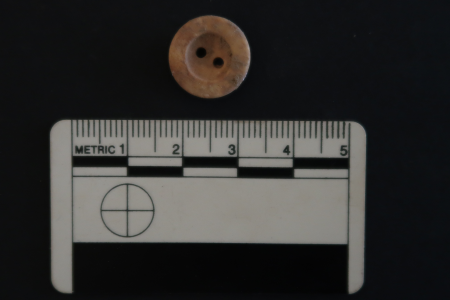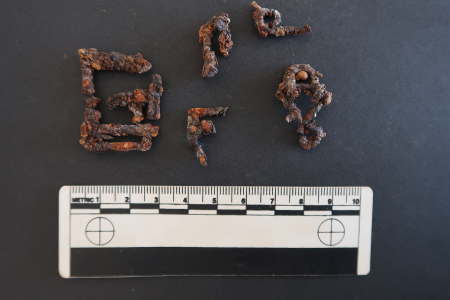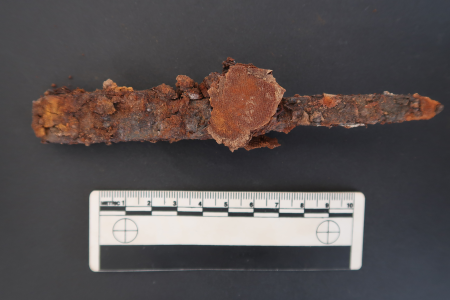Fieldwork







Location: Spain Chelva
Season: June 2, 2024 to June 29, 2024
Session Dates: Single season
Deadline Type: Rolling
Website: https://www.fieldsciences.org/program/2024-spain-chelva/
Discount for AIA members: None
Program Type:
Field School
RPA Certified:
No
Affiliation:
Center for Field Sciences & Universidad Europea Valencia
Project Director:
Dr. Llorenç Alapont Martin, Prof. Physical and Forensic Anthropology, Universidad Europea Valenci
Project Description:
The Spanish Civil War was fought from 1936 to 1939, between Republican and Nationalist forces. The war began in 1936, when General Francisco Franco began with a coup d’état against the democratically elected Republican Spanish state. Franco wanted to establish a fascist state in Spain and was supported by the then contemporary fascist regimes of Germany and Italy. The Spanish Civil War was seen by many around the world as a struggle between dictatorship and democracy and was internationalised almost immediately. Volunteers from around the world joined combatants of both sides.
Franco’s regime was based on intense repression that took many forms. Chief among those was the physical elimination of its enemies. As Franco’s Nationalist army took over, executions and mass killings almost immediately ensued.
Castellón began to be directly affected by the Spanish Civil War at the end of March 1938. With the defeat of Republican forces at Teruel, General Aranda – the commander of the Nationalist army – advanced toward Castellón. The town fell to the Nationalist forces on June 14, 1938, and the regime began its ‘liquidation’ program immediately.
The ‘liquidation’ of political opponents at Castellón took place in three different phases. From July to October 1938, irregular killings were carried out in the streets and exits of the town, on the roads or in local cemeteries. From November 1938 to February 1939, official files were created for detainees. No judicial process was followed, and immediate death sentences were signed by the military. The third phase was an institutional one. The regime created official War Councils, and a semi-judicial process was followed before death sentences were issued. That phase lasted until 1956. The vast majority of those executed in Castellón and its hinterland were killed during the third phase.
Recent excavations of a mass grave at the cemetery of Castellón, human remains of 51 individuals were exhumed (see images attached). Due to legal protocols and chain-of-custody procedures followed by the Spanish authorities, the remains were transferred to Chelva, the Valencia regional hub for Civil War human remains.
This field school is focused on studying the remains to determine identity, cause of death and other forensic elements so proper documentation could be created and remains may be returned to families and interned in designated graves.
Each student will be responsible for the full recording & study of at least one individual, and more if time permits. This program includes extensive travel to local Civil War sites, including Teruel and Valencia. Students will learn how to contextualize the analysis of human remains with historical events, how to engage with stakeholders and how to study victims of war atrocities and mass burials.
Period(s) of Occupation: Spanish Civil War
Notes:
Tuition cost is $4,675, including room & board and 8 semester credit units
Project Size: 1-24 participants
Minimum Length of Stay for Volunteers: Full season
Minimum Age: 18 years old
Experience Required: None. This is hands-on, experiential learning and students will study on-site how to conduct forensic archaeology research. Forensic work requires patient, respect and understanding of the capacity of humans for extreme violence. It demands discipline and attention to detail.
Room and Board Arrangements:
All staff and student will be staying at the 14th century Franciscan Monastery (featured at the film ‘The Name of the Rose’). The monastery was transferred to the ownership of the Vizcondal Palace Foundation – a local historical society – and has been remodelled and upgraded to become a functioning hostel. The monastery has large rooms, bathrooms, showers, library, dining room, a fully equipped kitchen, conference room, recreation and outdoor dining area, barbecue area, even a modest swimming pool.
The program provides three meals a day during the week. Students are responsible for their own meals during the weekend. Please note that dinner in Spain is quite late, usually served at 8:30pm.
Academic Credit:
8 Semester Credit units from Culver-Stockton College, our School of Record
The AIA is North America's largest and oldest nonprofit organization dedicated to archaeology. The Institute advances awareness, education, fieldwork, preservation, publication, and research of archaeological sites and cultural heritage throughout the world. Your contribution makes a difference.